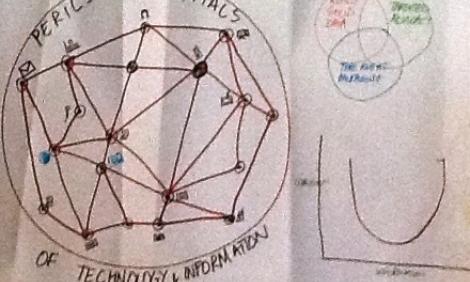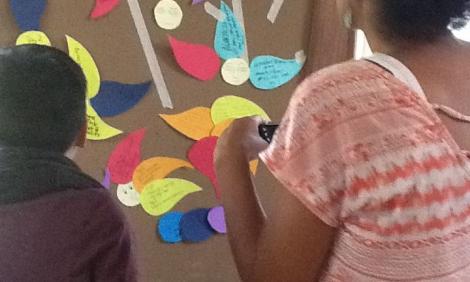
In depth
Indonesia: Put sex on the internet!
This article by Kamilia Manaf and Ni Loh Gusti Madewanti describes how the discourse on sexuality in Indonesia is becoming more political and part of the public sphere due to the impact of the reformations begun in 1998. However, while the internet has provided a space for the advancement of sexual rights in Indonesia, discrimination and violence against LGBT groups and women in Indonesia that…

In depth
How activism shapes your experience of being a citizen on the internet
What does it mean to use the internet freely and fully? What freedom do you have to express who you are, how you live your life, what you desire, dream and believe in on the internet? And how safely can you communicate, contribute, exist, navigate and be in the spaces online that can so powerfully connect you to communities and knowledges that build our sense of self? This article written by…
Publication
Women and online abuse in India: Submission to Special Rapporteur on Violence Against Women
In the Indian context, the internet has played a critical role in opening up rights for women on one side of the digital divide, giving them access to vital (at times, life altering) information and an opportunity to exercise (some for the first time) their right to free speech and expression through platforms such as blogs, micro blogs and social media. However, as in their lives offline, in the…
Feminist talk
Sexuality and the internet: a five country perspective
This blog post is the final one in a series of ten blog posts to report on the EROTICS India workshop, recently concluded in Delhi. All the blog posts in this series are written by Richa Kaul Padte, the official rapporteur at the meeting.
Feminist talk
‘Choli ke peeche kya hai?’: censorship and pornography
The discourse of censorship is well-known to most people, as India’s right-wing moral brigades routinely flock to the streets to prevent everything from item numbers in Bollywood films to sex education posters in trains to the greeting-card shop Archies (for its ‘promotion’ of Valentine’s Day) from going ahead. But what does this mean for freedom of speech and expression in the country? And more…
Feminist talk
Gendered abuse online
So you’ve got "proper online security":http://pointofview.org/blog/general/wearing-a-digital-condom-staying-sa…, "strong passwords":http://pointofview.org/blog/general/passwords-your-first-line-of-defence, and great…

Feminist talk
Wearing a digital condom: Staying safe online
Do you know how to use your web browser in a secure manner? What is the benefit of adding that "s" after http? Are you aware of the security features on the email you use? What sensitive data do you keep about you or your community, and what would people have access to if your computer, laptop or mobile phone was stolen? This article provides a list of resources and solutions to help you and your…

Feminist talk
Passwords: Your first line of defence
A password is your first line of defence – for your computer, email, and information. So firstly, make sure your computer is password protected (under the ‘admin’ account option), so your prying brother doesn’t get his hands on that flyer for the new weekly queer event. Or those letters from your lover. And if you really want to keep your information safe, you don’t just need a password, but you…

Feminist talk
Security risks online: How much information do you give away?
Imagine the life of an Indian gender or sexuality rights activist. What work do they do? Who do they interact with? What threats do they face? Here are some snapshots (created by participants).

Feminist talk
Mechanics and governance of the internet
The internet is an important part of many of our daily lives, work and activism - but how many of us actually understand what it is? Beyond mechanics, questions around who governs the internet are key to contextualising the struggle for rights - including sexuality rights - online.




